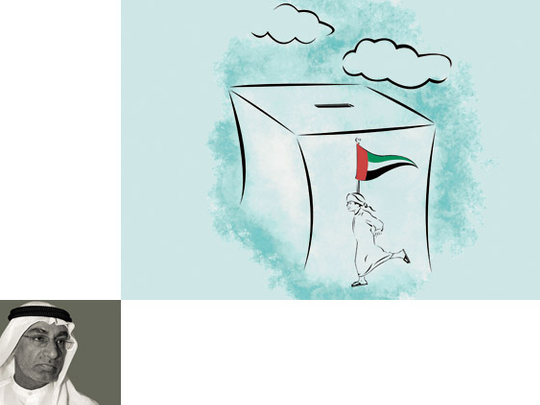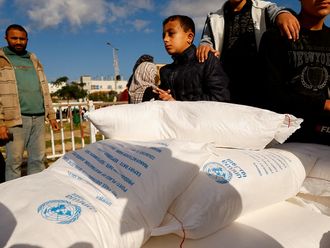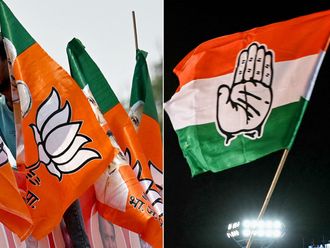
After a month of preparations for the Federal National Council (FNC) elections, attention is focused on ballot day. Conventional wisdom has it that the turnout is expected to be disappointingly low, something not very promising for democracy in the UAE.
A low turnout could be interpreted to mean that Emiratis are not interested in democracy and the country is not ready for political reform. But it could also indicate that the current step by step approach to citizens' empowerment is not convincing and needs to be re-evaluated.
Conventional wisdom aside, there are many good reasons to expect medium to low turnout on Saturday.
The first reason has to do with the high female representation in the Electoral College which is made up of 129,000 citizens. Nearly 59,000 women have the right to vote, that is 46 per cent of the total. In both Abu Dhabi and Dubai, the two leading emirates, 52 per cent of eligible voters are women.
The government certainly has the intention to give women their fair share in the election process, but international studies on voting patterns reveal that men usually vote in higher numbers than women. Generally, women are not as interested in elections, voting and politics as men. This is true even in the most mature democracies around the world. In addition, the prevailing culture and tradition might inhibit UAE women from going to voting centres.
The UAE government has also made it clear that it wants to see more youth participating in the elections. The intention is to cater to the future generation and keep up with the logic of the Arab spring. Emiratis aged between 20 to 30 make up 36 per cent of the Electoral College. This is indeed admirable, but it will affect the turnout negatively.
The younger generation nearly everywhere tends to show apathy towards elections and votes less than the older generation. Universally, voter turnout among the youth has been low. In fact, statistics show that youth turnout in the US is in decline since 1972, with very little exception.
But it is not just the social composition; the 2011 election has been typically low key and not very inspiring to the public. In the month leading up to the election, there has been no debate of any substance and hardly any real competition. The election is flat, soulless and too neat to be taken seriously by potential voters. The 2011 election has been lacking the needed zest.
The 486 candidates have not been very engaging either. They all look alike when it comes to issues and election slogans. They stayed away from controversies and controversial issues of the moment, which is the bread and butter of any real election. In keeping with the best of UAE's traditions and social manners, the candidates tend to be extra polite to each other and evade raising serious issues. The ladies and gentlemen are just not fighting the legitimate election fight. Needless to say, there is not even a whisper of criticism of government policies. Some of the candidates have a thin resume for a seat in the FNC. But the ones with somewhat thicker CVs tend to be low profile and repeat the same meaningless sound bites.
Many voters, especially the younger generation, are asking: Where is the meat? What are the issues? And what are we voting for? The general feeling is that the FNC is merely a consultative body that is stripped of all power. Voting is a national responsibility, but is it going to make the FNC any more representative of the UAE people?
Even if the FNC is fully empowered, there are many structural factors that make many voters disinterested in voting. In the UAE where economic prosperity, high standard of living and exceptional socio-political stability are guaranteed and enjoyed by a large segment of society, there is little incentive to vote even if it is the most dynamic election in the world.
The majority in the UAE seem to be satisfied with the status quo. They consider the UAE as the most ‘thriving' country in the region. The latest Gallup poll confirms that the 63 per cent of Emiratis rate their present and future ‘positively and optimistically'. Hence voting is simply not on people's list of priorities. They could skip the ballot day without feeling terribly guilty.
Some close observers are predicting a 30-40 per cent turnout. Others are more pessimistic and think the turnout might be as low as 20 per cent. But the government is expecting a turnout in the range of 50 per cent.
Luckily, conventional wisdom is often not as wise as it sounds. It is not to be taken very seriously and should not affect a voter's attitude. Hopefully, it will be proven wrong on judgement day — September 24 — now that President His Highness Shaikh Khalifa Bin Zayed Al Nahyan has made a direct appeal to the members of the Electoral College to participate and consider voting in this round of elections a national duty.
Dr Abdulkhaleq Abdullah is a professor of Political Science at Emirates University.









